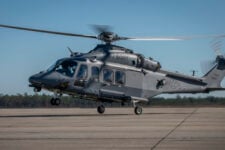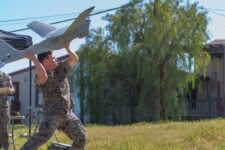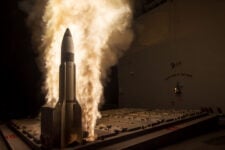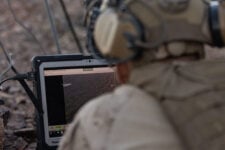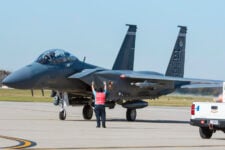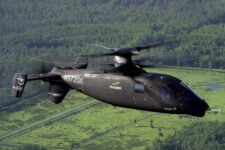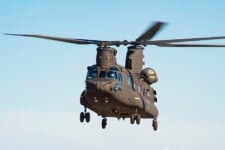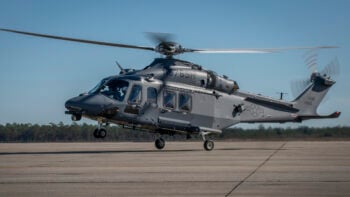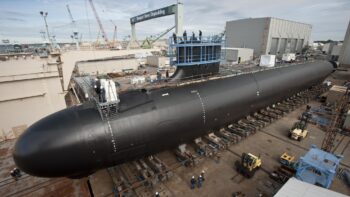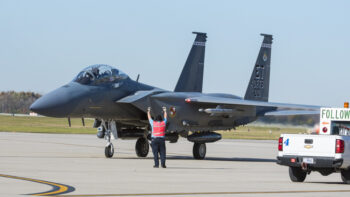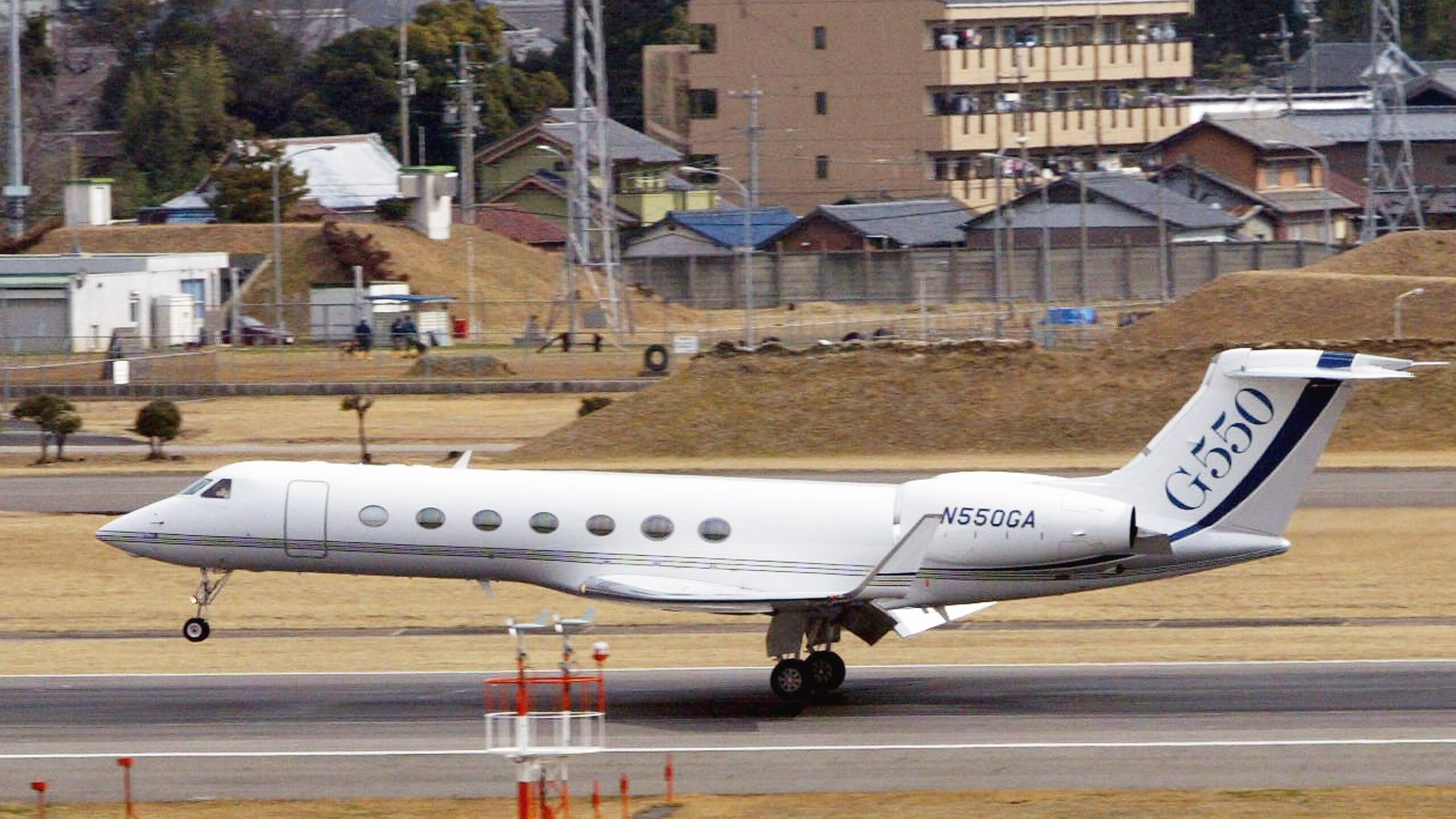
A Gulfstream G550 could become the body for Saudi Arabia’s next spy plane. (Koichi Kamoshida/Getty Images)
Updated March 9, 2022 at 11:17 am ET to clarify details of the current Saudi fleet.
WORLD DEFENSE SHOW: L3Harris is in talks with Saudi Arabia to replace its aging fleet of RE-3A Tactical Airborne Surveillance System (TASS) planes with a new spy platform that is better equipped to address the evolving threats facing the Kingdom, especially from the south, according to a company executive.
“We like to think that there will be contracts [with Saudi Arabia] announced before the end of the year. But the acquisition process here goes through its own speed. It will be a direct commercial sale,” Charles Davis, senior vice president at L3Harris International, told Breaking Defense at the World Defense Show in Riyadh.
Davis said that L3Harris has partnered with BAE Systems to offer the Saudi Air Force a new state of the art ISR platform that would replace the three RE-3A aircrafts — that he described as “basically a similar version of the United States Air Force RC-135 that’s known as the Rivet Joint” — that have been in service in the Kingdom for over 10 years.
“It is a multi-intelligence airplane that is able to pick up any kind of electronic intelligence signals, like signals intelligence, communications intelligence, and to use that information to do whatever is needed to stop an attack or plan an attack,” Davis said.
RELATED: Saudi Chinook delivery on schedule, Boeing turns eyes to F-15 upgrades
However, the threats continue to evolve, especially in regard to communication and offensive capabilities, and that is why, Davis notes, “we need to continually upgrade and develop new platforms to be able to pick up the new threats.”
The new platform offered to Saudi Arabia, according to Davis, is a Gulfstream G550 “which allows them to fly higher and pick up more information. Better endurance and better range.” The more compact technology aboard the G550 would allow the Saudi Air Force to have a much smaller crew to carry out all the required tasks. That description sounds an awful lot like the G550 AISREW (Airborne Intelligence, Surveillance, Reconnaissance, and Electronic Warfare) system L3Harris is providing to the Italian Air Force.
“On the [TASS] they [Saudi Air Force] have 20 or 25 people on the airplane depending on the task. In the new airplane there will be like 5 or 6 or 7 people because of the advances in the electronics and other systems,” added Davis.
Talks over the new platform have not affected ongoing programs to keep the current fleet fitted with the latest systems. “In fact, one of their airplanes is in one of our facilities in Texas getting a new system lift,” he said.
Saudi Arabia has been working hard to improve its intelligence, surveillance, and reconnaissance (ISR) capabilities in order to prevent attacks with drones, cruise missiles, and ballistic missiles launched by Iranian-backed Houthi militias in Yemen.
Davis noted that the new G550 platform on offer will be built in a way so that they can be procured “in direct commercial sales. So that makes it easier to us and makes it easier to the Kingdom.”
DCS deals require less American government intervention that Foreign Military Sales (FMS) cases, which is important as the Biden administration has given stronger scrutiny towards FMS cases for Saudi Arabia due to criticism from some members of Congress about the war in Yemen.
L3Harris is also negotiating with the Saudis is to do a complete systems-lift to cockpits of their fleet of 33 legacy C-130 Hercules airplanes, similar to the upgrade the company did to the US Air Force C-130s.
The C-130 modifications will include “new cockpits, new avionics, and new capabilities,” said Davis, adding that “the Kingdom has already expressed interest in upgrading the cockpits of their C-130s.”
Many of the programs L3Harris will be doing in Saudi Arabia going forward will be in partnership with the Kingdom’s domestic defense industries. The Saudi drive to localize many defense industries has intensified in the past few years, giving birth to many joint ventures and partnerships with international defense companies.
“L3Harris was the first company to establish a joint venture with the Saudi military industries. We signed an agreement in 2019. Fully commercially registered, and we have three contracts already placed with them at the moment,” Davis said.
One contract sponsored by the General Authority for Military Industries (GAMI) is to localize a software-defined radio, and other programs include “service centers for our Westcam EO/IR turrets and sensors that go on ships and aircrafts,” he said.
